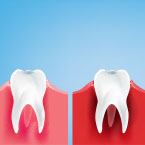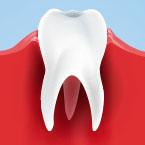Oral Care for Cancer Patients

Table of Contents
1/3 Undergoing Cancer Treatment Will Have Oral Complications
Approximately one-third of people who undergo treatment for cancer will develop some type of oral complications, according to the National Institute of Dental and Craniofacial Research at the National Institutes of Health. These complications can range from mild gingivitis to severe oral infections, and they can interfere with cancer treatment and with the patient’s overall quality of life.
Ideally, schedule any invasive dental procedures, such as a root canal, before you start chemotherapy because an untreated dental infection could become more severe as a side effect of the cancer drugs.
Once you begin chemotherapy, check your mouth each day for sores or other problems. Everyone responds differently to chemotherapy, and you may have some oral side effects for only a short time or for the duration of your cancer treatment.
Be sure to keep your oncologist informed about any changes in your oral health, and make sure that your dental professional and oncologist talk to each other to coordinate your care if dental problems arise during chemotherapy.
Side Effects of Chemotherapy
Oral side effects associated with chemotherapy include:
- Dry mouth
- Painful mouth and gums
- Oral infection
- Changes in taste
- Burning or swelling of the tongue
You can help relieve these side effects by following a consistent oral care routine of twice-daily tooth brushing and daily flossing. In addition, an at-home fluoride treatment can help prevent cavities and is often recommended for radiation therapy patients.
Table of Contents
- 1/3 Undergoing Cancer Treatment Will Have Oral Complications
- Side Effects of Chemotherapy
-
- Related Articles

Sign Up
for expert advice and exclusive offers

Sign Up
for expert advice and exclusive offers





